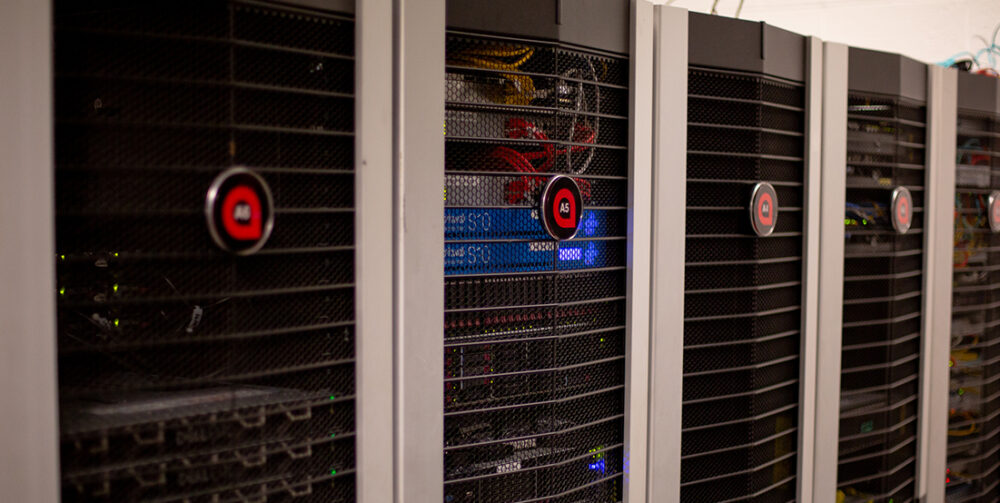Today’s computing landscape can be confusing. Once, things were straightforward: businesses owned and operated data centres—often at their headquarters location—in which they installed and managed their servers. And—generally speaking—all the software that the business ran resided on those servers. But today, as we all know, it’s rather more complicated than that.
Most obviously, of course, there’s Cloud Computing to contend with. Huge numbers of businesses these days rely on software applications that are delivered from the Cloud. Even if they wanted to, businesses couldn’t host some of these applications in their own data centres.
Applications such as Salesforce, for example. Or Microsoft 365. Or Google’s desktop office productivity suite, Workspace. Or Zoom. Or Slack. Or Amazon Web Services’ various application and file-storage services. Or various Cloud-only ERP systems and niche supply chain applications. And so on, and so on.
But that doesn’t mean that businesses can’t—or shouldn’t—continue to host their own software applications, in their own data centre. For every Cloud-only ERP system, there are plenty more ERP systems that run ‘on-premise’, in businesses’ own data centres. Ditto all those niche supply chain applications.
Many businesses also run their own software applications, developed in-house. They could run them in the Cloud, to be sure—but in many cases either they weren’t really designed for that, or they need careful management by skilled staff who know them well.
Not just software: hardware matters too
Nor is it simply considerations around software that steer businesses away from the Cloud, and towards operating their own data centres.
For many businesses, it also makes sense to have control over the hardware and other physical infrastructure on which their software applications are running.
All servers are much the same, you might think. All network attached storage, likewise. Not so. And software applications differ, too, in terms of the demands that they make on hardware, and hardware configurations.
Operating systems, and flavours of operating systems, also come into the equation. Yes, Windows Server in all its flavours is a popular choice. But so too are multiple varieties of Linux, especially in larger enterprises.
Businesses could find exactly what they’re looking for in the Cloud—but it’s often easier, and simpler, to simply resource it in-house, in a business’s own data centre.
The bottom line? Whether from a software application perspective, or an physical infrastructure perspective, the Cloud isn’t taking over everything. And nor is the corporate data centre dead.
Imagining a better data centre
That isn’t to say, though, that today’s corporate data centre represents the last word corporate data centres. It doesn’t. And in fact, there’s a different model for corporate data centre provision emerging—a model that retains all the advantages of on-premise control without any of the drawbacks.
For be under no illusions: there are drawbacks to owning and operating an on-premise corporate data centre.
Cost, most obviously. A data centre involves a lot of overheads, not all of which will be operating efficiently at full capacity.
They’re necessary expenses—undoubtedly—but they’re not always used at maximum efficiency. It’s difficult to have half a data centre manager, or half a network specialist, or half an applications specialist, for instance.
There are also drawbacks best described as vulnerabilities in terms of resilience and business continuity. Without incurring great expense, it can be difficult for an on-premise single-business data centre to have multiple power feeds, multiple routes into the Internet, multiple power backups, multiple redundant power components, and enterprise-class fire detection and suppression systems.
It’s also often the case that an on-premise corporate data centre isn’t always as flexible or scalable as might be desired. That’s understandable: it’s been designed to meet specific needs. Why waste money planning for unknown future requirements?
But inevitably, when those future requirements come around, difficulties in provisioning are encountered. And your corporate data centre, it’s safe to say, isn’t the sort of place that one willingly lets the builders into.
Is there a better way? Yes.

What are colocated services? And what are they not?
These days, businesses can choose a very different kind of corporate data centre—the Colocated Data Centre, sourced from a provider of colocation services.
The ‘colocated’ phraseology, we accept, isn’t the clearest, but that—perhaps, unfortunately—is the terminology in use within the industry.
But if the terminology is a little opaque, the idea itself is crystal clear: a specialist provider of colocation services commissions and builds the very best data centre that it’s possible to have—and your business rents space within it, in which to locate whatever servers and other physical infrastructure that you desire.
Now, a colocated data centre isn’t the same as a Cloud data centre, even though they’re both physically remote from your business. The Cloud is the Cloud: a standard, ‘select from a menu’ way of specifying and delivering computing provision.
A colocated data centre is therefore not a ‘better’ solution than a Could data centre—it’s simply a different one, customised precisely to the hardware and software needs of your business, and packaged and delivered more efficiently and cost-effectively than a self-managed on-premise data centre. It’s your equipment, provisioned and supported in your space, that you rent.
What are the benefits of Colocation?
At a stroke, you benefit from world-class connectivity in terms of communications and power supplies, and best-in-class redundancy and backup in terms of resilience and business continuity.
The main benefits of colocation include:
- Enhanced physical security.
- Scalability with flexible storage to meet business requirements.
- Cost-efficient management with predictable monthly billing.
- Exceptional uptime and reliability with enterprise-level redundancies.
All of which—including the overheads—you share with all the other businesses sharing (or colocating in) the very same data centre.
Let’s talk Colocation
Want to know more? Talk to us. Aspire Technology Solutions are a leading provider of colocation services, delivered from our seven tier-3 enterprise grade data centres across the UK, all connected via our own 1Tbps resilient core network, delivering a 99.99% uptime.
From a single server hosted in a shared rack, to individually-lockable half-cabinets and full-cabinets, we offer a range of colocation hosting options and services, each of which can be precisely tailored to meet your organisation’s needs and requirements. But all buttressed by a 24/7 Aspire support team, dedicated to keeping your business operational at all times.
Put simply, colocation is a better approach to computing.



